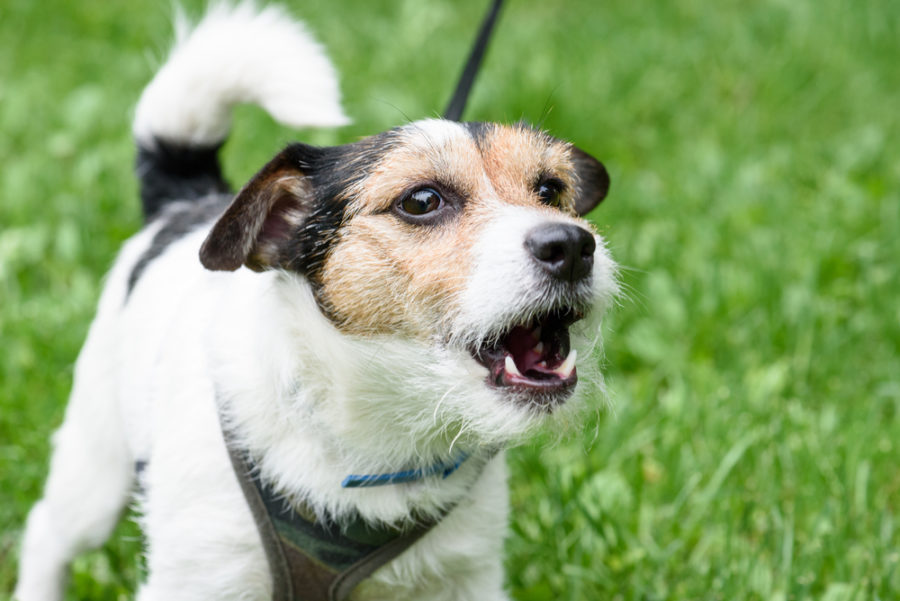If your dog is leash aggressive, this might help shed some light on his behavior and help you solve the problem once and for all.
Does your dog burst into a fit of barking and growing whenever you pass another dog on a walk? According to a 2017 study led by the University of Arizona’s School of Anthropology, this leash aggressive behavior might be a result of his hormones.
The study enrolled various leash aggressive dogs to take part in the study, and found a clear link between the hormone vasopressin and heightened aggression. Dogs that had higher levels of the hormone oxytocin, on the other hand, tended to be more placid.
According to holistic veterinarian Karen Becker, these results may lead to new approaches for treating leash aggression in dogs. “It’s possible to influence your dog’s behavior by interacting with him in a friendly, nonthreatening way,” writes Dr. Becker in her article “New Study Sheds Light on Canine Aggression”. “Studies show these types of loving dog-human interactions actually increase oxytocin release in dogs, and lower vasopressin levels. An added bonus is that your hormone levels also respond positively.”








